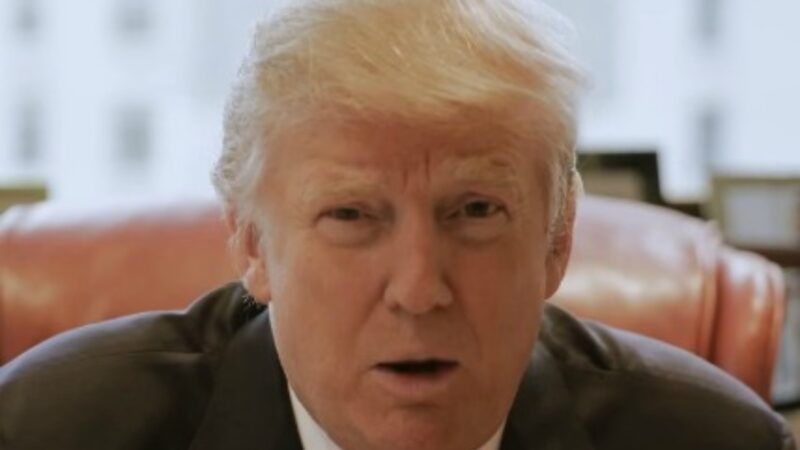SCOTUS Full of Trump Appointees Joins the Conspiracy To Deny Trump His Rightful Victory
The justices declined to intervene on behalf of Republicans who challenged absentee voting in Pennsylvania.

Today the U.S. Supreme Court declined to intervene on behalf of Donald Trump allies who challenged a 2019 Pennsylvania law that allowed voting by mail without any special justification. The plaintiffs, led by Rep. Mike Kelly (R–Pa.), sought to reverse Pennsylvania's election results, which gave Joe Biden a lead of 81,660 votes, by arguing that the expansion of absentee voting violated the state constitution. The Pennsylvania Supreme Court rejected their petition with prejudice on November 28, concluding that it was filed much too late. Today's one-sentence order, which rejected the plaintiffs' request for an emergency injunction without a recorded dissent, leaves that ruling undisturbed.
Kelly et al. filed their challenge in state court on November 21, two and a half weeks after the election and three days before Gov. Tom Wolf (D) certified Biden's victory. As the Pennsylvania Supreme Court noted, they "sought to invalidate the ballots of the millions of Pennsylvania voters who utilized the mail-in voting procedures" established in 2019. Alternatively, they "advocated the extraordinary proposition that the court disenfranchise all 6.9 million Pennsylvanians who voted in the General Election and instead 'direct[] the General Assembly to choose Pennsylvania's electors.'"
The state Supreme Court's decision did not address the merits of the Republicans' constitutional argument, instead finding that the lawsuit was prohibited by the doctrine of laches, which "bars relief when a complaining party is guilty of want of due diligence in failing to promptly institute an action to the prejudice of another." Although the Pennsylvania legislature approved Act 77, the law that expanded absentee voting, in October 2019, Kelly and the other plaintiffs did not challenge it until after Pennsylvania proved to be crucial in defeating Trump's reelection bid.
"Petitioners' challenge violates the doctrine of laches given their complete failure to act with due diligence in commencing their facial constitutional challenge, which was ascertainable upon Act 77's enactment," the Pennsylvania Supreme Court said.
"The want of due diligence demonstrated in this matter is unmistakable." The court added:
Petitioners filed this facial challenge to the mail-in voting statutory provisions more than one year after the enactment of Act 77. At the time this action was filed on November 21, 2020, millions of Pennsylvania voters had already expressed their will in both the June 2020 Primary Election and the November 2020 General Election and the final ballots in the 2020 General Election were being tallied, with the results becoming seemingly apparent. Nevertheless, Petitioners waited to commence this litigation until days before the county boards of election were required to certify the election results to the Secretary of the Commonwealth. Thus, it is beyond cavil that Petitioners failed to act with due diligence in presenting the instant claim. Equally clear is the substantial prejudice arising from Petitioners' failure to institute promptly a facial challenge to the mail-in voting statutory scheme, as such inaction would result in the disenfranchisement of millions of Pennsylvania voters.
Earlier today, Case Western Reserve law professor Jonathan Adler explained why Kelly's attempt to overcome that ruling was an uphill fight. "The biggest problem with this suit is the lack of a real federal question," he wrote. "Whatever one thinks of the state law questions, the attempts to make a federal case out of these state law claims is quite strained, and the existence of independent and sufficient state law grounds should insulate the Pennsylvania Supreme Court's decision from review."
The defeat of this lawsuit adds to a nearly unbroken string of legal defeats for Trump and his allies, who have unsuccessfully tried to reverse Biden's election by challenging vote counting procedures or alleging widespread fraud without persuasive evidence. The vast conspiracy to deny Trump his rightful victory apparently now extends to the Supreme Court, which includes six Republican appointees, half of them nominated by Trump himself.


Show Comments (388)